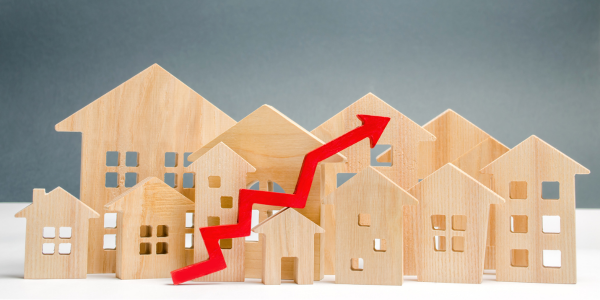
New Zealand’s housing market has seen its fair share of ups and downs over the years, with the most recent drop in property prices linked to interest rate rises and cost of living pressures. But the tide may be turning, and there’s growing evidence to support a property rebound sooner than anticipated. Buyers choosing to wait for property prices to go lower should consider the impact that decision could have on borrowing power once property prices go up.
Demand vs. supply
Demand for housing in New Zealand continues to grow, driven by a shortage of affordable housing and a surge in net migration. Over the past year, .
Across the country, real estate agents are reporting an increase in buyers at open homes, in particular first home buyers, while at the same time, auction clearance rates in Auckland are showing early signs of an upward trend, suggesting this market is coming back to life far quicker than anticipated.
In his recent monthly survey, economist Tony Alexander reports that buyers are becoming less worried about property prices falling and the fear of overpaying – FOOP – and more concerned about missing out, as the level of FOMO is starting to creep up.
Property investors re-entering the market
The housing market could see strong interest from property investors anticipating a change in government in the upcoming election, further increasing competition and driving up property prices.
Legislative changes would make it more attractive for investors to return to the market, with National pledging to reinstate a key tax advantage for investors that Labour is currently phasing out.
Prior to 1 October 2021, mortgage interest deductibility allowed investors to subtract mortgage interest payments from their rental income for tax purposes. But this is being phased out to incentivise property investors to build new homes in an effort to fix the housing crisis.
Additionally, National has pledged to reduce the bright-line test from between five and 10 years to two, effectively removing any capital gains tax for most investors.
A pause on the OCR
Another factor that could drive the housing market upward is the Reserve Bank of New Zealand’s (RBNZ) recent indication that it won’t be lifting the official cash rate (OCR) higher than 5.5 per cent. This follows an increase of 25 basis points earlier in May 2023.
While it’s impossible to completely rule out that the OCR will go any higher, or that the RBNZ will start cutting rates in 2023, it’s reasonable to assume that interest rates could start to fall as early as the first quarter of next year.
The New Zealand housing market is well-placed to rebound between now and the end of 2024. With confidence growing and a period of stability increasingly likely, the next year is poised to present opportunities for first home buyers.
Getting ready to buy
Here are some tips to help first home buyers prepare to buy a home in 2023:
- Financial readiness: Build a strong financial foundation by saving a deposit, paying down debt and improving your credit score.
- Do your research: Evaluate property values and market trends to get valuable insight into which areas offer the best return on your investment.
- Get professional advice: Navigating the home buying process can be complex, but working with a mortgage adviser who specialises in helping first home buyers is invaluable.
A rebound sooner than you think
New Zealand's housing market is poised for a rebound in 2023, driven by increasing demand coupled with ongoing supply shortages, a potential change in government and legislature, and the RBNZ’s indication of no further OCR movement.
By taking some proactive steps, first home buyers can position themselves for success to make home ownership a reality. Contact a Mortgage Express branded mortgage adviser for personalised mortgage advice tailored to your unique situation.



